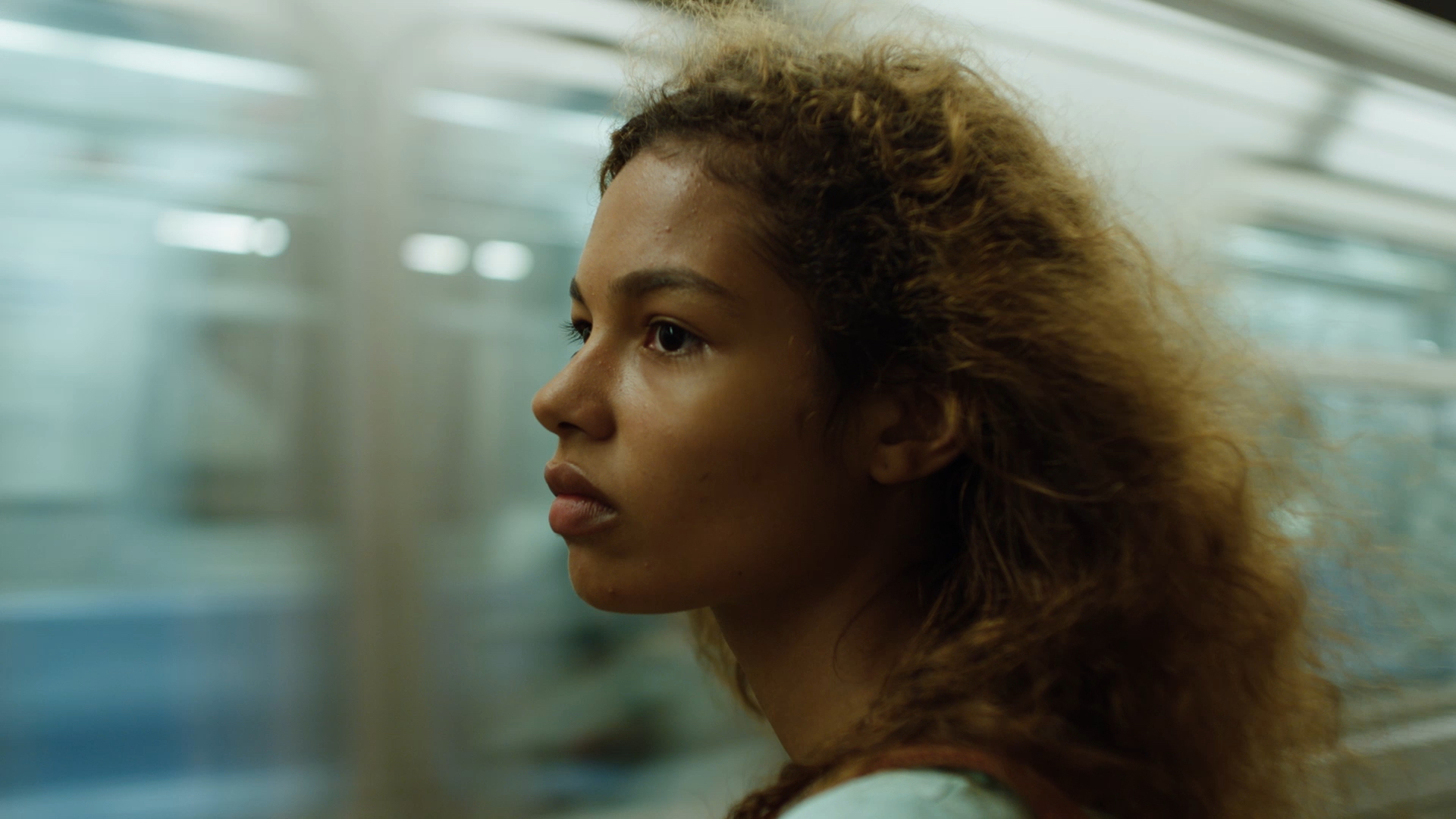
MPAA Rating: NR | Rating: ★★★★½
Release year: 2018
Genre: Coming-of-Age, Drama, WTF Director: Josephine Decker
“The emotions you are having are not your own. They are someone else’s. You are not the cat. You are inside the cat.” So says the hazy, friendly feminine face into the camera, a POV shot indicative that we are inhabiting the mind/body of the viewer. But I am not the camera. I am inside the camera. I am seeing what the camera sees. The face continues: “What you are experiencing is just a metaphor.” Philosopher Paul Ricoeur once wrote that metaphors are ontologically new descriptions of reality–they are ultimately untranslatable, even as they say something (and create something) of our existence. That’s what this powerful film is: a description of what is real and true precisely by means of formal illusion, imagination, and redescription. Emotionally vibrant, aesthetically innovative, and charming as hell, this is Madeline’s Madeline, and it is wondrous.
Identity and metaphor blur together within Madeline’s Madeline‘s expressionistic story, a coming-of-age tale which takes personal subjectivity quite seriously. What is Madeline’s Madeline about? Mental health, adolescence, gender, parenthood, sexuality, the artistic and creative process, cinema, everything. It is a true metaphor, and per Ricoeur, all true metaphors hold potentially infinite interpretations. At the center of it all is the titular teenage Madeline, played by newcomer Helena Howard who gives the best filmic performance of 2018, regardless of age or gender. Over the course of the film, via its magical montages and woozy cinematography, we discern that Madeline’s mental health is somewhat unstable, and that her relationship with her mother Regina (Miranda July) is contentious. Madeline finds some sense of solace and belonging in a New York experimental theater troupe, led by Evangeline (Molly Parker). The group seems to be endlessly practicing for a never-yet-arriving performance or production; Evangeline often seems to be improvising off stage just as much on stage. As Madeline opens up about her mental health and familial troubles with Evangeline, the artistic director begins to see Madeline as a sort of muse or inspiration, leading the troupe to begin performing versions of Madeline’s personal experiences. This is problematic for all sorts of reasons, with Madeline caught between the two motherly figures trying to direct her life, only able to free herself via the artwork she creates.
Filmmaker Josephine Decker imbues Madeline’s Madeline with a paradoxical authenticity and fantasy–characters and performances feeling strikingly real even as there is a sense of dreamy staged artifice about every moment. The camera often takes on a POV shot, inviting us to view the world through Madeline’s eyes (sometimes those eyes are looking through a fabric pig mask) and consider another’s perspective. The cinematography is vivacious and kinetic, like it too is improvising alongside this eccentric troupe of characters, the script revealing itself as everyone follows the central rule of improv: say “yes” to whatever is happening or suggested. The trio of Madeline, Regina, and Evangeline make up a trinity of feminine confidence and insecurity as each dramatically navigates what it means to be a woman, a mother, a daughter, a human.
The highest praise I can give Madeline’s Madeline is that it surprised me. I just didn’t see this film coming. It takes a conventional coming-of-age tale and does something remarkably fresh and unique with it. Delightful and delicate, intense and intimate, Madeline’s Madeline evokes a strong response within its audience, compelling us to do something with this metaphor, to feel and explore, to remove our own masks and reconsider our very selves in the face of another.
IMDB Listing: https://www.imdb.com/title/tt6101602/
Leave a Reply